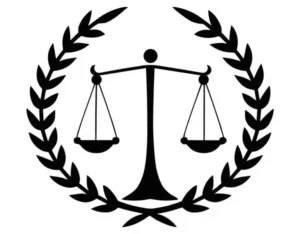How Long Does a Medicaid Investigation Take?
For medical professionals, receiving notice of a Medicaid investigation can be one of the most stressful experiences in their career. As healthcare providers navigate through these challenging times, one of the most pressing questions is: how long does a Medicaid investigation take? Understanding the timeline can help practitioners prepare emotionally, financially, and legally for what lies ahead.
Contact us today for a confidential consultation and take the first step toward protecting your professional future.
At Varghese & Associates, P.C., we have represented numerous healthcare professionals facing Medicaid fraud allegations in New York City and beyond. Our experience has shown that while each case is unique, there are general patterns and timelines that can help you understand what to expect during this process.
How Long Does a Medicaid Investigation Take in NYC?
In New York City, Medicaid investigations typically take between 1-5 years to complete, depending on the complexity of the case. The process includes:
- Preliminary investigation phase: 3-18 months of evidence gathering
- Formal investigation: 6-24 months involving:
- Document requests and subpoenas
- Staff and patient interviews
- Billing pattern analysis
- On-site inspections
Resolution timelines vary significantly based on the pathway:
- Administrative proceedings: 9-18 months
- Civil litigation: 2-4 years
- Criminal proceedings: 3-5 years
Factors influencing duration include case complexity, provider cooperation, agency resources, and whether multiple government entities are conducting parallel investigations.
The Medicaid Fraud Investigation Process
Medicaid fraud investigations in NYC typically span 1-5 years and involve multiple phases conducted by state and federal agencies.
- Initial Detection: Investigations often begin through data analysis, whistleblower reports, or patient complaints that trigger agency interest in billing patterns or practices.
- Preliminary Review: Investigators gather initial evidence quietly, reviewing claims data and records for 3-18 months before the provider becomes aware of any investigation.
- Official Notification: The formal process begins when you receive document requests, subpoenas, or direct contact from investigators, signaling that a Medicaid investigation is underway.
- Document Production: Investigators request extensive documentation including patient records, billing information, and practice policies, often giving limited time for compliance.
- Staff Interviews: Investigators may question employees, associates, and patients about billing practices and patient care, sometimes without your knowledge or presence.
- Agency Coordination: Multiple entities including OMIG, Attorney General's MFCU, OIG, and federal prosecutors may collaborate, extending the timeline as they share information.
- Expert Analysis: Medical and billing specialists review your records to identify patterns that could indicate potential fraud, comparing your practices to established standards.
- Resolution Pathways: Cases resolve through administrative proceedings (9-18 months), civil settlements (2-4 years), or criminal prosecution (3-5 years) depending on evidence severity.
- Settlement Negotiations: Most Medicaid investigations conclude with settlement discussions rather than trials, but these negotiations can extend for months or years.
- Post-Resolution Monitoring: After case resolution, providers often face heightened scrutiny and compliance requirements for several years following a Medicaid investigation.
Understanding how long a Medicaid investigation takes allows medical professionals to make informed decisions about their practice and legal strategy while working with a Medicaid fraud lawyer who can navigate these complex proceedings.
Why Medicaid Might Be Investigating You
Understanding the triggers for Medicaid investigations can help healthcare providers identify potential vulnerabilities in their practices before how long a Medicaid investigation takes becomes your immediate concern.
- Billing Irregularities: Consistent coding errors, unusual billing patterns, or services billed at higher rates than regional averages can trigger automated flags in Medicaid's data analysis systems.
- Whistleblower Allegations: Current or former employees, patients, or competitors may file qui tam lawsuits alleging fraudulent billing practices, initiating investigations that remain sealed during the preliminary phase.
- Patient Complaints: Multiple complaints about services not rendered, unnecessary procedures, or discrepancies in billing statements often prompt Medicaid officials to scrutinize a provider more closely.
- Statistical Outliers: Providers whose billing patterns significantly deviate from peers in their specialty or geographic region face heightened scrutiny through comparative analysis tools.
- Documentation Deficiencies: Incomplete medical records, missing signatures, inadequate treatment plans, or inconsistencies between services billed and documented can suggest potential fraud during routine audits.
- Prior Disciplinary Actions: Previous sanctions, license issues, or exclusions from other healthcare programs increase the likelihood of proactive monitoring and investigation.
- Referral Relationships: Financial connections with entities receiving your referrals may trigger anti-kickback investigations, especially if referral patterns correlate with financial arrangements.
- High-Volume Billing: Unusually high numbers of patients, procedures, or claims per day that seem physically impossible to deliver may signal potential fraud to investigators.
- Upcoding Patterns: Systematically billing for more complex or comprehensive services than documented in medical records creates patterns that specialized software can detect.
- Medically Unnecessary Services: Providing treatments without proper documentation of medical necessity often leads to investigation, particularly for high-cost procedures or durable medical equipment.
If you recognize any of these warning signs in your practice, consulting with a Medicaid fraud lawyer promptly can help address compliance issues before they develop into full investigations that can take years to resolve.
Possible Outcomes of a Medicaid Investigation
Knowing how long a Medicaid investigation takes is important, but understanding the potential outcomes helps providers prepare for the various resolutions that might occur after months or years of scrutiny.
- No Action Letter: The investigation concludes with no findings of wrongdoing, allowing you to continue practicing without penalties or program restrictions.
- Repayment Demand: Medicaid may require repayment of alleged overpayments, often with interest, which can range from thousands to millions of dollars depending on billing volume and alleged violation patterns.
- Corporate Integrity Agreement: You may be required to implement expensive compliance programs with regular reporting and monitoring for 3-5 years while remaining in the Medicaid program.
- Payment Suspension: During lengthy investigations, Medicaid may suspend payments to your practice, creating significant financial strain even before any final determination of wrongdoing.
- Program Exclusion: Temporary or permanent exclusion from Medicaid participation can result, effectively preventing you from treating Medicaid patients and often triggering exclusion from Medicare and other programs.
- Civil Monetary Penalties: Beyond repayment, investigators may impose additional fines of up to $50,000 per violation plus three times the amount of damages sustained by Medicaid.
- Professional License Sanctions: State licensing boards may impose practice restrictions, supervision requirements, or license suspension based on findings from Medicaid investigations.
- Civil Litigation: The government may pursue False Claims Act cases with potential for treble damages and penalties, especially in cases initiated by whistleblowers who may receive a percentage of recovery.
- Criminal Prosecution: Severe cases may result in healthcare fraud charges carrying potential prison sentences, especially when investigations reveal intentional fraud schemes or patient harm.
- Public Disclosure: Regardless of outcome, the reputational impact of being investigated can affect patient trust and professional relationships long after the case concludes.
Working with a Medicaid fraud lawyer who understands these potential outcomes can help develop strategies to achieve the most favorable resolution possible, particularly during the extended timeframe that Medicaid investigations typically take.
When To Contact a Medicaid Fraud Defense Lawyer

Knowing when to seek legal representation is crucial, as how long a Medicaid investigation takes often depends on having proper counsel from the earliest possible stage.
- Document Request Receipt: Contact a Medicaid fraud lawyer immediately upon receiving any formal document requests or subpoenas from Medicaid, as these indicate an active investigation has begun.
- Unusual Audit Patterns: Seek legal advice when facing multiple audits within a short timeframe or unusually detailed reviews that suggest heightened scrutiny beyond routine compliance checks.
- Investigator Contact: Reach out to our healthcare fraud defense lawyers before responding to any unscheduled visits or calls from Medicaid Fraud Control Unit investigators, as these interactions can significantly impact case outcomes.
- Whistleblower Concerns: Consult with a medical fraud lawyer if you suspect a current or former employee may have filed a qui tam complaint, especially if you've noticed unusual document copying or access to billing records.
- Payment Holds or Delays: Contact legal representation promptly if Medicaid begins withholding payments without clear explanation, as this often signals an active fraud investigation.
- Patient Interviews: Seek counsel if patients mention being questioned about their care or services received, as this indicates investigators are building a case.
- Statistical Analysis Letters: Engage a criminal defense lawyer upon receiving notifications that your billing patterns deviate significantly from peers, as these comparative analyses often precede formal investigations.
- Self-Discovered Errors: Consider legal advice when you identify significant billing errors internally, as self-disclosure strategies require careful legal navigation to minimize penalties.
- Exclusion Notices: Immediately contact a Medicaid fraud lawyer if you receive notice of potential program exclusion, as timing is critical for preserving appeal rights.
- Search Warrants: Obtain emergency legal representation if investigators arrive with a search warrant, as this indicates a criminal investigation that could impact how long a Medicaid investigation takes and its ultimate severity.
Engaging experienced legal counsel at the first sign of an investigation can significantly influence both the duration and outcome of Medicaid fraud proceedings, potentially saving your practice, reputation, and career from the devastating consequences that can result from uninformed responses to government inquiries.
How a Medicaid Fraud Defense Lawyer Can Protect Your Rights and Practice
Professional legal representation is essential during Medicaid investigations, as understanding how long a Medicaid investigation takes is just one aspect of effectively navigating this complex process.
- Strategic Communication Management: A Medicaid fraud lawyer serves as an intermediary with investigators, ensuring you don't inadvertently make damaging statements while maintaining cooperative appearances that can positively influence investigation length.
- Document Production Oversight: Counsel ensures all document requests are properly scoped, privileged materials are protected, and submissions are organized to present your practice in the most favorable light.
- Procedural Safeguards: Experienced attorneys recognize when investigators exceed their authority and can challenge improper tactics, preserving your due process rights throughout the investigation.
- Early Case Assessment: A skilled lawyer can identify the likely trajectory of your case early in the process, helping to set realistic expectations about how long a Medicaid investigation takes in your specific circumstances.
- Parallel Proceedings Coordination: Legal representation helps manage simultaneous administrative, civil, and criminal investigations, ensuring that responses in one context don't create unnecessary exposure in others.
- Evidence Analysis: Attorneys work with forensic experts to evaluate the evidence against you, identifying weaknesses in the government's case and favorable documentation to support your defense.
- Compliance Program Development: While addressing current allegations, counsel can implement remedial measures that demonstrate good faith efforts to prevent future issues.
- Settlement Negotiation: A Medicaid fraud lawyer with litigation experience can effectively negotiate resolution terms, often accelerating case conclusion and securing more favorable outcomes.
- Trial Preparation: If settlement isn't possible, your attorney builds a comprehensive defense strategy, including expert witnesses and legal arguments tailored to your specific circumstances.
- Reputation Protection: Beyond the legal case, experienced counsel helps manage public relations aspects of Medicaid investigations to minimize reputational damage during the extended investigation period.
At Varghese & Associates, P.C., we understand that medical professionals facing Medicaid fraud allegations need more than just information about how long a Medicaid investigation takes—they need strategic advocacy that protects their practice, license, and liberty throughout this challenging process.
Protect Your Practice Today
If you're facing a Medicaid investigation, time is a critical factor. At Varghese & Associates, P.C., we understand how long a Medicaid investigation takes and the toll it can place on your practice and reputation. Our team of dedicated Medicaid fraud lawyers stands ready to provide the strategic defense you need to navigate this complex process. Contact us today for a confidential consultation and take the first step toward protecting your professional future.

